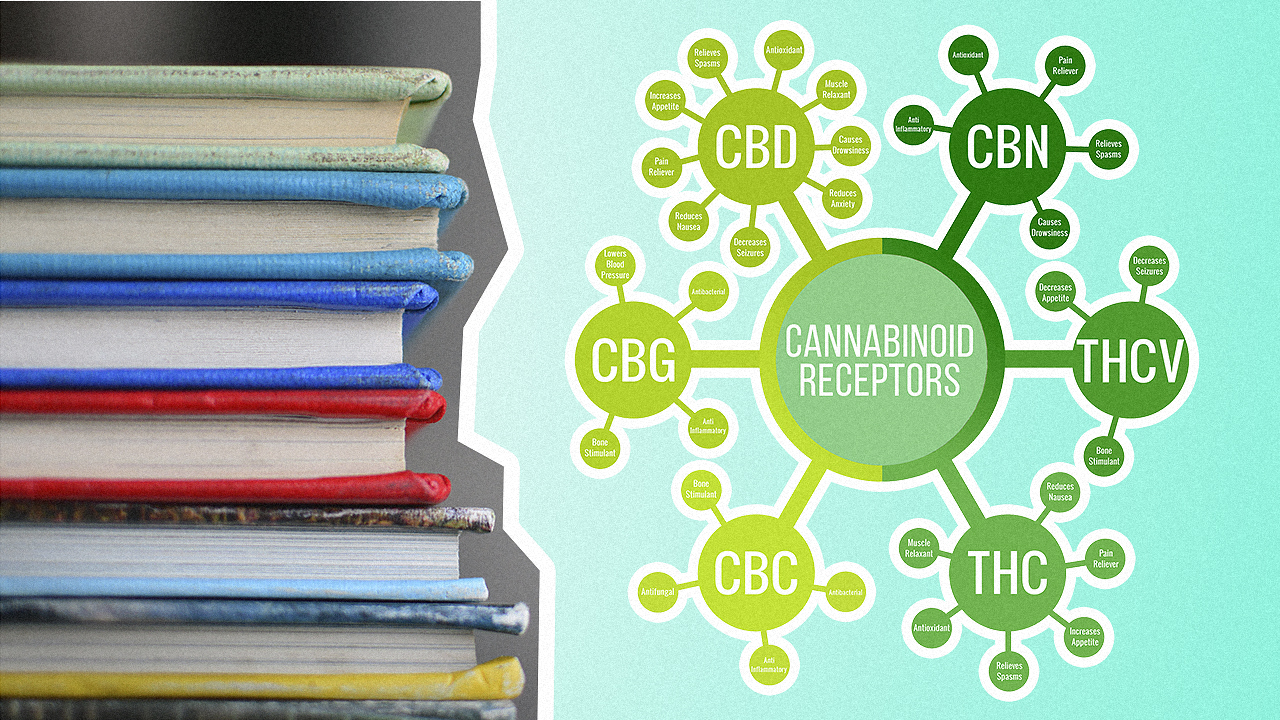Cannabinoid Receptors and Their Effect on Human Organs
Summarize

If you’re familiar with cannabis as a therapeutic product, then you probably are no longer wondering what cannabinoids, such as THC and CBD are. Medicinal relief can be achieved with these cannabinoids for many uses.
Terpenes are related to these cannabinoids, also providing a great deal of relief. This relief is provided by these compounds thanks to a variety of special receptors that are all through our bodies. These receptors are part of the endocannabinoid system. The endocannabinoid system very much intertwines with our nervous system and immune system, so we need to control things like our appetite, quality of sleep and more.
The Endocannabinoid System and Why Do We Have Cannabinoid Receptors?
The body naturally contains cannabinoids in its makeup. However, you can supplement with these compounds just like you would any other naturally occurring substance in the body. Receptors called CB1, and CB2 will kick into gear when additional cannabinoids are ingested or inhaled into the body. Some of these receptors are designed to work closely with cannabinoid receptors in the brain and nervous system. The other receptors work more with the immune system.
When you consume a cannabinoid or terpene, it will bind to the receptors of choice.
Endocannabinoid deficiency is prevalent, and lack of appropriate cannabinoids will lead to an imbalance in homeostasis. A variety of diseases and conditions can come about when the body is not working quite as efficiently as it should be.
What Are Cannabinoid Receptors, and What About CB1 and CB2 Cannabinoid Receptors?
While these receptors have long been part of our bodies, scientists discovered it in the 1990s, cannabinoid receptors CB1 in 1990, and CB2 in 1993 by research at Cambridge University.
While they do very different processes within the body, they both mainly aim for the same balance. THC can bind very strongly with CB1. These receptors are largely located within the central nervous system, brain, glands, connective tissues, and related organs. It’s why consuming THC will cause psychoactive results.
CB2 receptors are located within the immune system also in organs such as the tonsils, spleen, and thymus gland. The gastrointestinal system has many CB2 receptors. You will find some CB2 receptors in the brain, but they are not as prevalent here. Supplementing with additional cannabinoids can provide a great deal of relief from a whole host of auto-immune conditions and many other ailments.
Differences in Our Bodies
One person may have more CB1 and CB2 receptors than someone else does. Because of this, one person may be very sensitive to cannabinoid receptors supplementation, while another person may feel like they need large doses of supplements to achieve any results.
Most people have a lot of receptors within the central nervous system, but there aren’t quite as many within the peripheral nervous system.
Not only will the prevalence of CB1 and CB2 receptors affect results, but the density of these receptors is also a factor. All of this ties into how cannabinoids affect the body and its organs.
How a Person Benefits from CBD or Synthetic Cannabinoids Supplementation
The real question is, how does understanding the endocannabinoid system affects how a person takes care of themselves? How does it affect them as a consumer? As a person becomes educated on different kinds of receptors within the endocannabinoid system, they have the knowledge needed to prevent and treat a variety of various diseases and conditions.
Their experience will allow them to pick a product that will be the most beneficial option for them. Some people with extreme tension prefer to utilize THC. CBC is a cannabinoid that stays in the body much longer than other cannabinoids. It might be a beneficial option for someone who is looking to use these supplements.
Are There Other Receptors in the Body?
Since the discovery of CB1 and CB2 so new, that there is the potential for additional receptors that we can to find in the body. Of course, research for CBD, cannabinoids and these cannabinoid receptors is ongoing. This research is going to provide the medical and scientific community with information that is needed to utilize these supplements fully. Right now, the use of cannabinoids is purely anecdotal.
The results can’t be denied, but there is a real lack of proof and understanding. It’s holding the medical community back from fully utilizing and trusting cannabinoids. The legalization of CBD was an important step a couple of years ago. Continued legislation is likely to occur, making changes in how we utilize cannabinoids for optimal health.
At The End
Over 480 different natural components exist within the cannabis plant. You can use it for supplementation. When you supplement with these components, the endocannabinoid system will be able to rebalance itself and function optimally. You have the potential to fight disease, prevent health concerns, and feel your best. The most benefits come from high-quality cannabis plants that grow organically. There are a few different varieties that you can cultivate commercially.
Keep in mind, THC is the only component of the cannabis plant that provides psychoactive main results. You can safely supplement with a CBD cannabinoid and many other cannabinoids without dangerous side effects like feeling ‘high’ or tired. If you are looking to avoid THC, you’ll want to investigate third-party lab results before making a final purchase. The way to reap the most benefits is to do plenty of research and find a pure and potent product that you can use daily.
Share this post


0